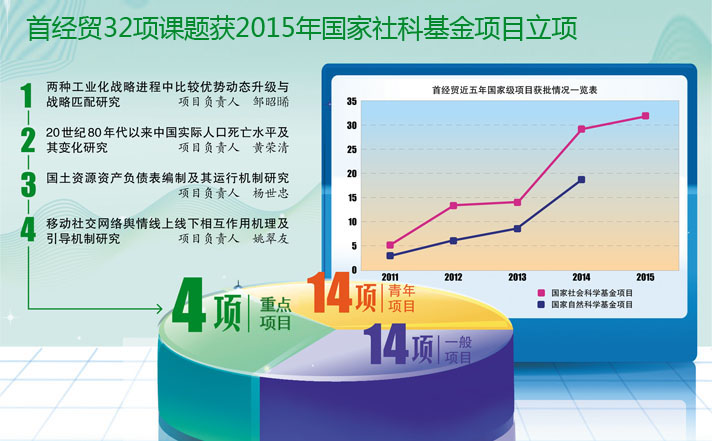Political Economy is one of the first few disciplines that were established in the Capital University of Economics and Business. Professor Fu Zhufu and Professor Bai Tuofang, the famous economic historian and economist both had once worked in CUEB. They engaged in researching and teaching, and thus laid solid foundation for the early development of the discipline. This discipline began to recruit undergraduates in 1974 and postgraduates in 1998.
Featured Disciplines
Political Economy
-
A Discipline Development Overview

-
 B Faculty and Students
B Faculty and StudentsIn the 21st century, the discipline of Political Economy has gained considerable progress under the leadership of Professor Zhang Liancheng, Professor Wang Shaoguo and Professor Ma Fangfang. In 2006, the major of Economics was awarded the Brand Major of Beijing, and was approved to be one of the first state-level special construction majors by the Ministry of Education in 2007. Also in 2007, the teaching team of the core coursesof Economics, including political economy, was awarded the excellent teaching team of Beijing. In the same year, this discipline was approved to be the Key Construction Discipline of Beijing, and later in 2010, the teaching team was again approved by the Ministry of Education to be the state-level teaching group. In 2008, the courses on Political Economy were awarded the sate-level Excellent Course and Excellent ResourceShared Course of China in 2013.
-
C Discipline Development Overview
The discipline of political economy has benefited from the idea of open education by the School of Economics, and thus has formed its own features and advantages. During the past decade, this discipline has cooperated and conducted research on economic theory with some research institutes like Institute of Economics Chinese Academy of Social Sciences, etc. and signed agreements with Shanghai Futures Exchange, etc. to co-establish social practice bases for the students. Until now, it has established various kinds of cooperation with 7 universities overseas. With the approval of the Ministry of Education and Beijing, this discipline established a state-level Economics international talent training base and an international Economics innovation talent training base of Beijing in 2009.Later in 2012, the major of Economics was selected to be a state-level reform unit for higher education. In the past few years, over ten graduates and postgraduates have been sent overseas annually for exchange free of charge, and several graduates have been selected to study for dual degree at home and abroad. Over ten graduates have been recommended for admission to University of Illinois and UniversitéToulouse 1 Capitole for Master’sDegree.
-
D Projects, Funds, and Laboratories
After over 30 years of teaching staff development, this discipline now has a highly experienced and qualified teaching team with strong capability in research.The structure of the teachers’graduate school, age and education background has been upgraded and optimized. During the past few years, the teaching staff of this discipline has published more than 20 monographs, textbooks, and over 100 papers in many core and authoritative journals.Over 50 research projects have been approved, among which 5 projects are supported by the national social science foundation, more than 10 projects are supported by the Ministry of Education and Beijing government. The teaching staff has won 7 provincial and ministerial-level awards. Together with those teaching and research achievements, this discipline has also trained nearly 1500 graduates and over 70 master graduates, many of whom have become leading figures and core members of many government agencies, enterprises and public institutions.

-
 E Future Plans and Construction Aims
E Future Plans and Construction AimsIn recent years, the discipline of western economics stays close to the theoretical frontiers and developments, and constantly adjusts and optimizes its research orientations, both of which embodies the academic characteristics and forefront-orientated features of this discipline. Now there are 4 research orientations, i.e. reform and comparison of economic systems, factor market and income distribution, public choice and government management, financial development and fictional economy. The academic research of these four orientations have all reached a high level, and have formed prominent features and obvious advantages in several fields like income distribution, government management, monetary policy and economic transition.
